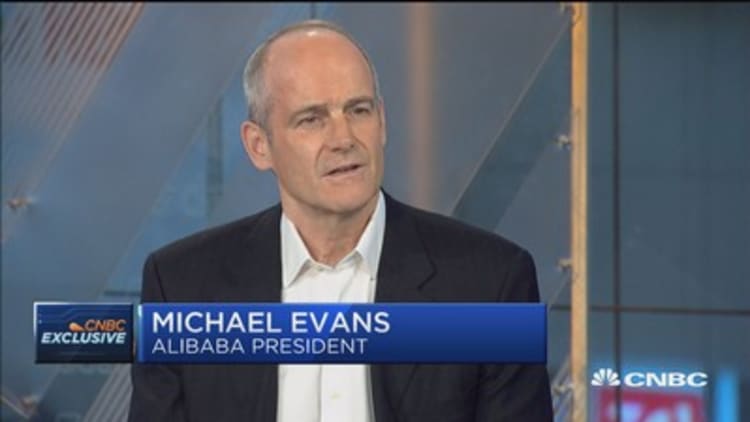The beginning of June ushers in cherry season, when fruit lovers swoon for heaps of firm, yellow Rainiers, sweet deep red Bings, and heart-shaped Sweetheart cherries.
For the 2,200 growers in Oregon, Washington and Idaho, 72-hour farm-to-table summer campaigns begins at 4 a.m. Cherries are picked, packed, cleaned, chilled, and put on an international flight by evening.
Twelve hours later, they are in China, where they are re-packed and shipped, often to upper-middle class families in Shanghai and Beijing. And it's all thanks to China's richest man, Alibaba founder Jack Ma.
When Keith Hu of Northwest Cherry Growers was hired to connect American cherry farmers to Chinese consumers, e-commerce giant Alibaba provided a better platform than international grocers.
Hu's experience highlights how the modern grocery landscape demands both the speed and reach of international e-commerce and the local connections to access to farm-to-table produce. Indeed, Amazon's blockbuster purchase of Whole Foods, announced on Friday, has drawn more than one comparison to the acquisitions by Amazon's Chinese counterpart.
"Alibaba didn't buy one retailer, it has bought already 4 retailers for the same reasons. The same will be true for Amazon: it will need a lot more physical store state to distribute efficiently, across the major cities," Bernstein analyst Bruno Monteyne wrote in a Friday research note. "This leaves other grocers with 2 choices: (1) try to be the next network to be bought by Amazon, or (2) become the local surviving incumbent, the alternative shop to Amazon."
The acquisition of Whole Foods will allow Amazon to the offer the "best natural and organic foods," CEO Jeff Bezos said in a statement announcing the deal.
While Alibaba prides itself mainly on providing a logistics ecosystem for local businesses, it has deep ties with major grocery stores and food delivery businesses across the world. The company has invested in Sanjiang Shopping Club, food delivery service Ele.me, cold supply chain company Cainiao, and many others.
Premium American cherries have a strong brand presence and can sell for $10 a pound in China, where local growing conditions, health standards and agricultural technology fall short of the U.S.
"We started working with the wholesale market, Walmart China, big box retailers," said Hu. "We hit a bottleneck, we wanted to go past the first and second tier cities.... Alibaba was a much better product." The partnership has been so successful that Hu suspects the benefits "trickle down" to other parts of the industry, like workers, chemical companies and packing houses.
As both Amazon and Alibaba expand internationally — and pricey fresh foods from the West, like avocados, find worldwide markets — these two businesses could quickly come into competition.
Ahold-Delhaize in the Netherlands and Carrefour in Brazil and Western Europe could make good targets for Amazon's next expansion, Monteyne wrote. Stewart McGuire of Credit Suisse posited British online supermarket Ocado could be an attractive acquisition target for Amazon.
Ocado declined to comment on the speculation, while the other chains, many of which are in different time zones, were not immediately available to comment.
"Amazon's grocery ambitions have extended to more non-U.S. regions (U.K., France, Germany), and we should expect this to continue at its worldwide operations, at which point most grocers will become a direct competitor," McGuire wrote.



